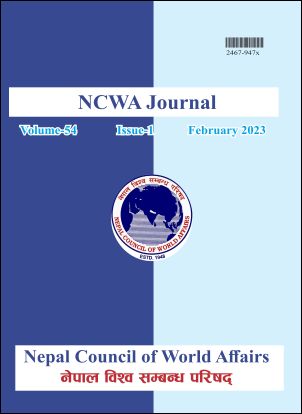The Transitional Justice Process of Nepal: National and International Dimensions
DOI:
https://doi.org/10.3126/ncwaj.v54i1.54923Keywords:
Transitional Justice, International Humanitarian Law, International Human Rights Law, Transitional Justice Mechanism, Truth, Justice, Reparation, Non-recurrenceAbstract
Transitional justice is an evolving discipline for academics and researchers. It is the full range of processes and mechanisms associated with a society’s attempt to come to terms with a legacy of large-scale past abuses, to ensure accountability, serve justice and achieve reconciliation. The transitional justice process of Nepal aims to address the humanitarian consequences of the non-international armed conflict that Nepal went through from 1996 to 2006. International law-human rights and humanitarian law-governs the transitional justice process together with domestic laws. The transitional justice process in Nepal is an issue of concern to the international community as well. It is now an element of Nepal’s diplomatic intervention in various platforms and fora. Nepal is struggling to find an appropriate modality of transitional justice. This article has been prepared primarily based on desk research-consulting relevant publications, websites, positions of the stakeholders-and diplomatic representations of the Government of Nepal. It updates the readers on Nepal’s initiative on transitional justice and argues that it falls within the wider scope of Nepal’s foreign policy.




